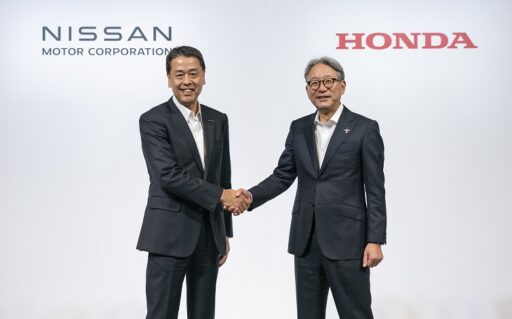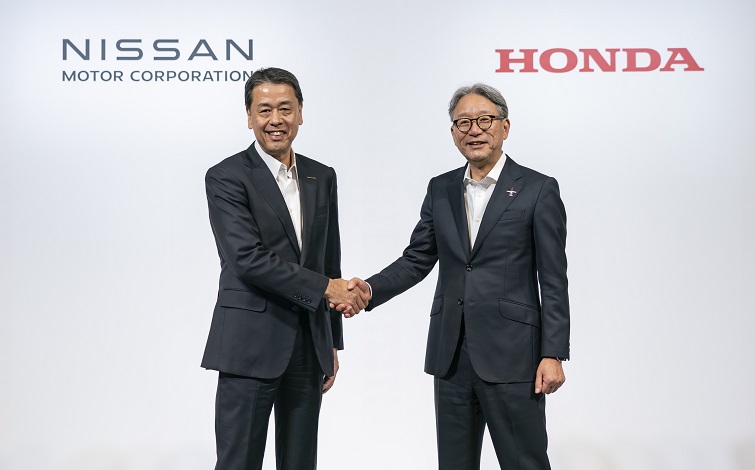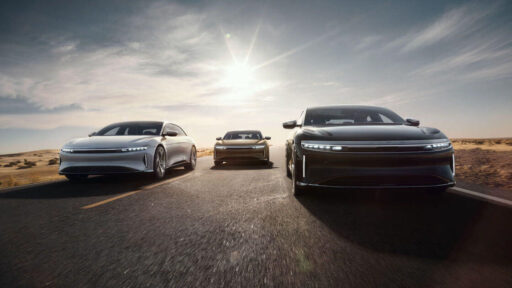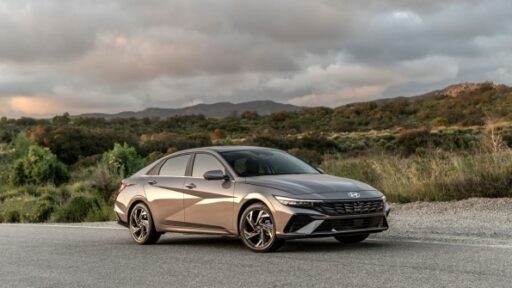Nissan Motor Co., Ltd. and Honda Motor Co., Ltd. have announced a joint venture to research foundational technologies for next-generation software-defined vehicles (SDVs). This collaboration stems from a memorandum of understanding (MOU) signed on March 15, which initiated discussions on a strategic partnership focused on the era of intelligent and electric vehicles. A second MOU was signed today to deepen and expand this strategic partnership.
The collaboration between Nissan and Honda aims to accelerate their shared goal of achieving a carbon-neutral, accident-free society. Both companies are committed to advancing research and development (R&D) and investing in technologies that promote the evolution and widespread adoption of electric vehicles (EVs), particularly SDVs. These vehicles represent the cutting edge in intelligence and electrification.
READ MORE: Porsche Repurposes Used Taycan Batteries into Energy Storage for Leipzig Plant
Both automakers recognize that the software domain—encompassing autonomous driving, connectivity, and artificial intelligence (AI)—is crucial for future vehicle value and competitiveness. They believe that combining their resources, including technological expertise and human capital, can lead to significant innovations and synergies.
Under their joint research agreement, Nissan and Honda will explore fundamental technologies for the next-generation SDV platform. This project, which has just commenced, aims to complete basic research within a year, potentially paving the way for mass production development.
Key areas of cooperation outlined in the latest MOU include:
- Next-generation SDV Platform: The two companies will collaborate on basic technologies essential for the SDV platform, aiming to finish initial research within a year. The results will inform potential mass production development.
- Batteries: Recognizing batteries as vital to EVs, Nissan and Honda will explore cooperation from short-term and long-term perspectives. This includes sharing specifications and mutually supplying batteries. By integrating their battery technologies and resources, they aim to offer a diverse range of battery options, reduce costs through shared investments, and mitigate risks. They have agreed to standardize their battery cell module specifications to ensure compatibility across both brands’ vehicles. Additionally, they are considering the supply of lithium-ion batteries from L-H Battery Company, Inc., a Honda and LG Energy Solution joint venture, to Nissan in North America by 2028.
- e-Axles: Both companies have agreed to standardize the specifications of their e-Axles over the medium to long term. Initially, they will share motors and inverters, which are central to the e-Axle system, for use in future EV models from both manufacturers.
- Mutual Vehicle Complementation: Nissan and Honda will explore supplementing each other’s vehicle lineups from short-term to long-term perspectives. They have agreed on models and regions for mutual complementation and have established a joint product review system. Both internal combustion engine (ICE) vehicles and EVs are being considered for this initiative.
- Energy Services and Resource Circulation in Japan: The companies will investigate potential collaborations in Japan related to energy services and resource circulation, including battery charging, energy equipment, and energy services utilizing batteries.
Nissan and Honda are committed to exploring further synergies and implementing specific measures swiftly as they continue their partnership.
READ MORE: Lexus Ranks Among Top 10 Most Popular Passenger Car Brands in Poland
Subscribe today for the freshest car news delivered to your inbox




